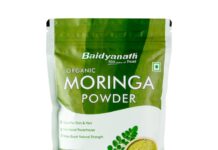
This year’s World Food India 2025, which took place from 25 to 28 September at Bharat Mandapam in Delhi, focused on helping startups and small food businesses expand globally. The event, which featured pavilions from countries such as New Zealand, Saudi Arabia, Germany, Japan, and Russia, provided opportunities for small businesses to connect internationally by offering tailored B2B meetings. As the largest producer of milk, onions, and pulses, India is increasing its processed food exports, which reached US$49.4 billion in 2024-25, according to government data.
One example of a successful startup was Devinder Singh, who started Dilli Creamery in a small corner of Vikaspuri, Delhi, in 2024 to recreate the authentic taste of Punjabi paneer and dairy sweets. Beginning with just 20 liters of milk a day and handmade paneer, Singh focused on purity and tradition. After registering with FSSAI and receiving support for small food processors, he began production.
Today, Dilli Creamery produces 300-350 liters of milk, 20-25 kilograms of paneer, and 40-50 kilograms of sweets every day. For Singh, World Food India 2025 was a chance for his brand to stand alongside global names, attracting buyers while staying true to its roots. His stall, located in the Ministry of animal husbandry and dairying pavilion, drew international retailers.
Similar was the story of Shravan K Roy from Bihar’s Darbhanga-Mithila region. His journey began in December 2019 when he launched a small processing and packaging unit. Initially producing only 100-150 kilograms of makhana a month, he sold mostly to local markets and faced many challenges. However, Roy believed that makhana deserved recognition as a global superfood.
Startup India, Startup Bihar, and B-HUB provided him with mentorship, while subsidies helped cover machinery costs, and export schemes opened international markets, he said. He then expand his brand beyond Bihar to cities such as Delhi, Mumbai, and Bangalore. Today, FT-MBA Makhana Wala processes 4-6 tons a month, offering a range of roasted, flavored, and premium-quality makhana. As a GI (Geographical Indicator)-authorized user, Roy represents his region’s heritage.
There were stories from abroad too. Nadi Food, a German exhibitor at WFI, had a positive experience this year. Their salesperson noted that while the company had attended WFI in the past, this year they chose to exhibit. The representative mentioned that strong interest from Indian businesses encouraged them to explore opportunities and begin operations in India.
Over four days, 26 leading companies signed MoUs worth Rs1,02,046.89 crore (US$1149.55), marking one of the largest investment announcements in India’s food processing sector, a statement released by the government said. These commitments are expected to create over 64,000 direct jobs and benefit more than 1 million people indirectly.
The agreements involved major companies such as Reliance, Coca-Cola, Amul, Nestlé, and Tata Consumer Products and covered diverse sectors such as dairy, beverages, packaged foods, and ready-to-eat products with investments spanning 18 states. Invest India helped facilitate these MoU signings, supporting the government’s goal of making India a global hub for food processing.
The event featured over 10,500 B2B meetings, 261 government-to-government sessions, and 18,000 reverse buyer-seller meetings, providing a structured environment for emerging businesses to find partners, explore export opportunities, and initiate joint ventures. Dedicated zones, such as the Great Indian Food Street and innovation corners, allowed startups to showcase regional products, new flavors, and technology-driven solutions for packaging, cold storage, and food preservation, helping them attract investors and global partners, the organizers said.
IndiFoodBev — authentic, impactful and influential
An English-language food and beverage processing and packaging industry B2B platform in print and web, IndiFoodBev is in its third year of publication. It is said that the Indian food and beverage industries represent approximately US$ 900 billion in revenues which implies more than 20% of the country’s GDP. Eliminating the wastage on the farmside can help to deliver more protein to a higher number of the population apart from generating sizable exports. The savings in soil, seeds, water, fertilizer, energy and ultimately food and nutrition could be the most immense contribution that country is poised to make to the moderation of climate change.
To improve your marketing and grow sales to the food and beverage processing and packaging industry, talk to us. Our research and consulting company IppStar [www.ippstar.org] can assess your potential and addressable markets in light of the competition. We can discuss marketing, communication, and sales strategies for market entry and growth.
Suppliers and service providers with a strategy and budget for targeted marketing can discuss using our hybrid print, web, video, and social media channels to create brand recognition linked to market relevance. Our technical writers are ready to meet you and your customers for content.
The second largest producer of fruit and vegetables in the world is continuously expanding processing capacities and delivery systems with appropriate innovative technologies. We cover product and consumer trends, nutrition, processing, research, equipment and packaging from farm to thali. Get our 2025 media kit and recalibrate your role in this dynamic market. Enhance your visibility and relevance to existing markets and turn potential customers into conversations. Ask for a sample copy of our bi-monthly in print or our weekly IndiFoodBev eZine each Wednesday.
For editorial info@ippgroup.in — for advertisement ads1@ippgroup.in and for subscriptions subscription@ippgroup.in
Naresh Khanna – 10 February 2025
Subscribe Now










